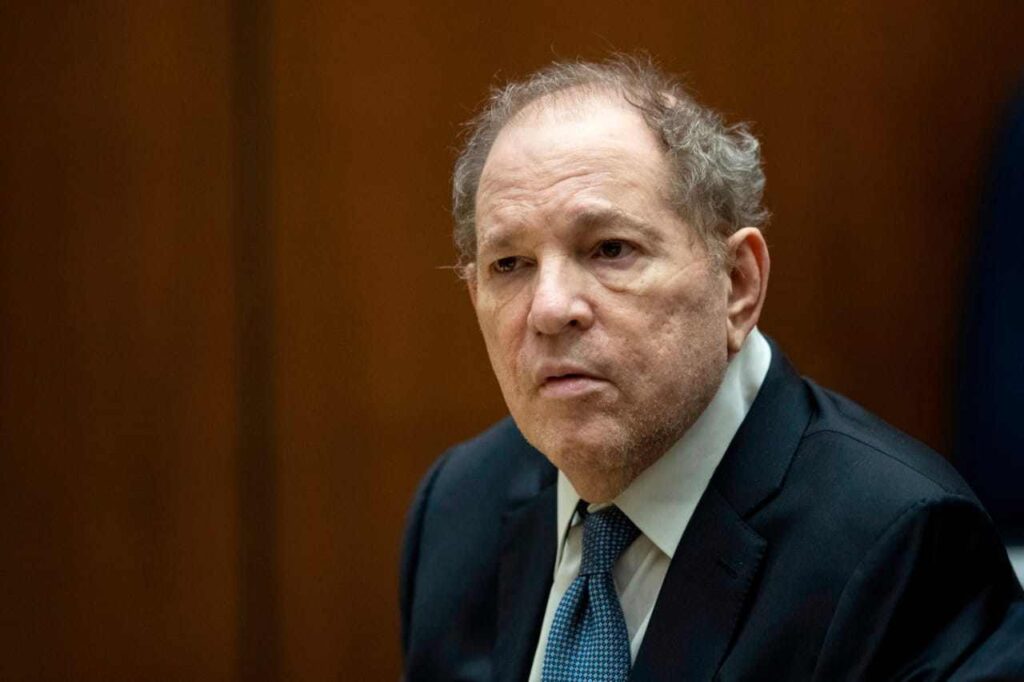Harvey Weinstein’s rape conviction from 2020 was overturned in New York, prompting the possibility of a new trial.

Harvey Weinstein, once a powerful figure in Hollywood, faced a significant turn of events as his 2020 rape conviction in New York was overturned by the state Court of Appeals. This decision set the stage for a potential new trial, shaking the foundation of a landmark #MeToo case that had captivated the world’s attention.
Also Read:- Taiwan Rattled by Series of Earthquakes: Resilience in the Face of Seismic Challenges
The Court of Appeals didn’t mince words in its assessment of the trial proceedings. It found fault with the judge’s handling of the case, particularly pointing out what it deemed as prejudicial rulings. One such ruling allowed testimony on uncharged allegations, which the court deemed as serving no material non-propensity purpose. This decision cast doubt on the fairness of the trial and raised questions about the admissibility of evidence.
The ramifications of this decision are profound. Weinstein’s accusers, who bravely testified against him during the initial trial, may be called upon once again to relive their trauma. For them, the prospect of facing another trial brings with it a mix of emotions—hope for justice tempered by the pain of having to recount their experiences once more.
Attorneys representing the victims expressed disappointment and concern over the ruling. They fear it could deter future sexual assault survivors from coming forward, seeing it as a setback for the #MeToo movement and the progress made in holding perpetrators accountable.
On the other side, Weinstein’s legal team welcomed the decision, viewing it as a victory for due process and the rights of criminal defendants. They see the overturning of the conviction as a validation of their efforts to ensure a fair trial for their client.
Also Read:- Activist Greta Thunberg arrested at Hague Climate Protest
Despite the setback in New York, Weinstein’s legal troubles are far from over. He is currently serving a prison sentence in California for a separate rape conviction. The overturning of his New York conviction does not erase the gravity of his actions or the impact they had on his victims.
In the broader context, Harvey Weinstein‘s case has become emblematic of the larger societal reckoning with issues of power, abuse, and accountability. His downfall, catalyzed by investigative journalism and the bravery of his accusers, sparked a global movement that continues to reshape attitudes and policies surrounding sexual misconduct.
